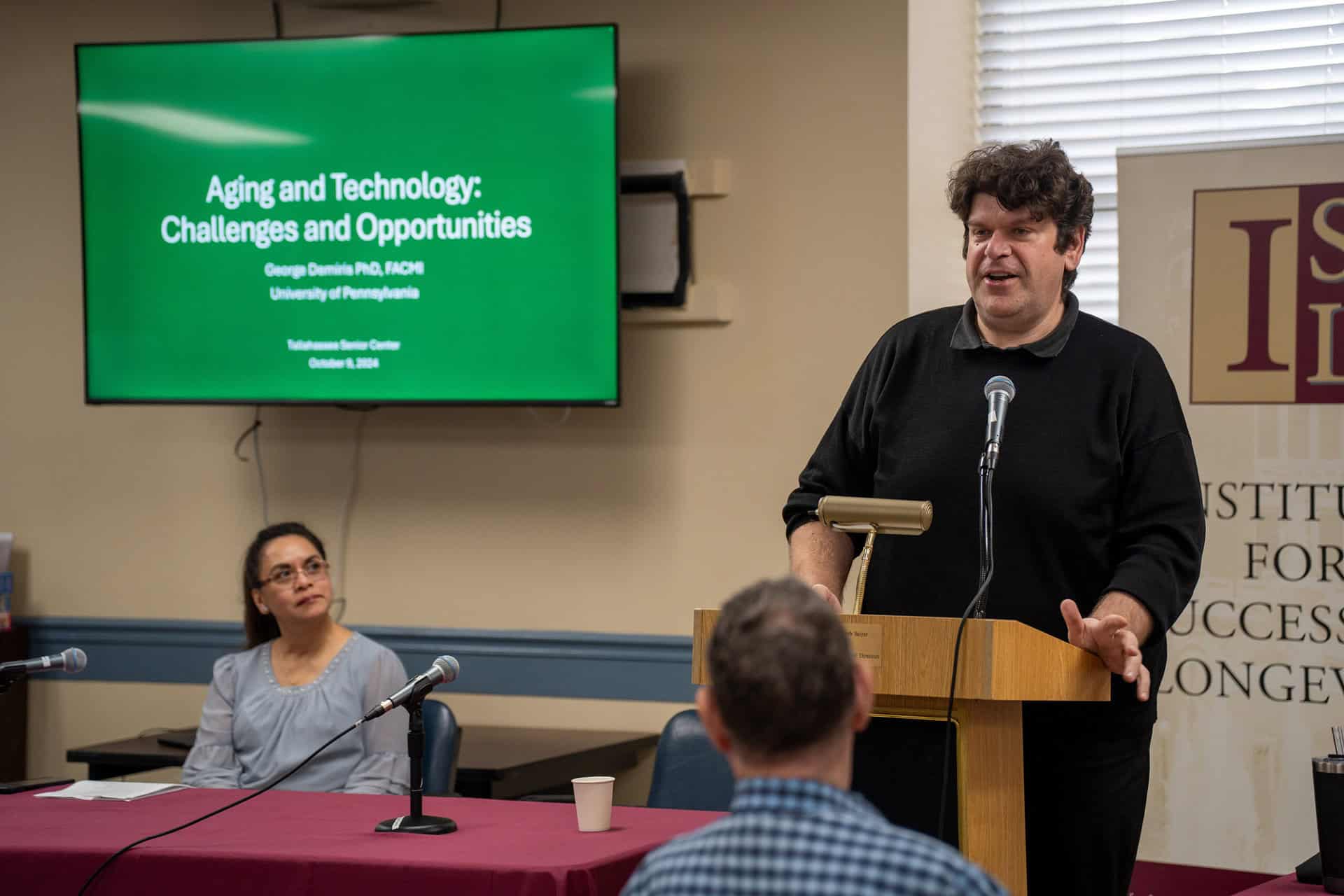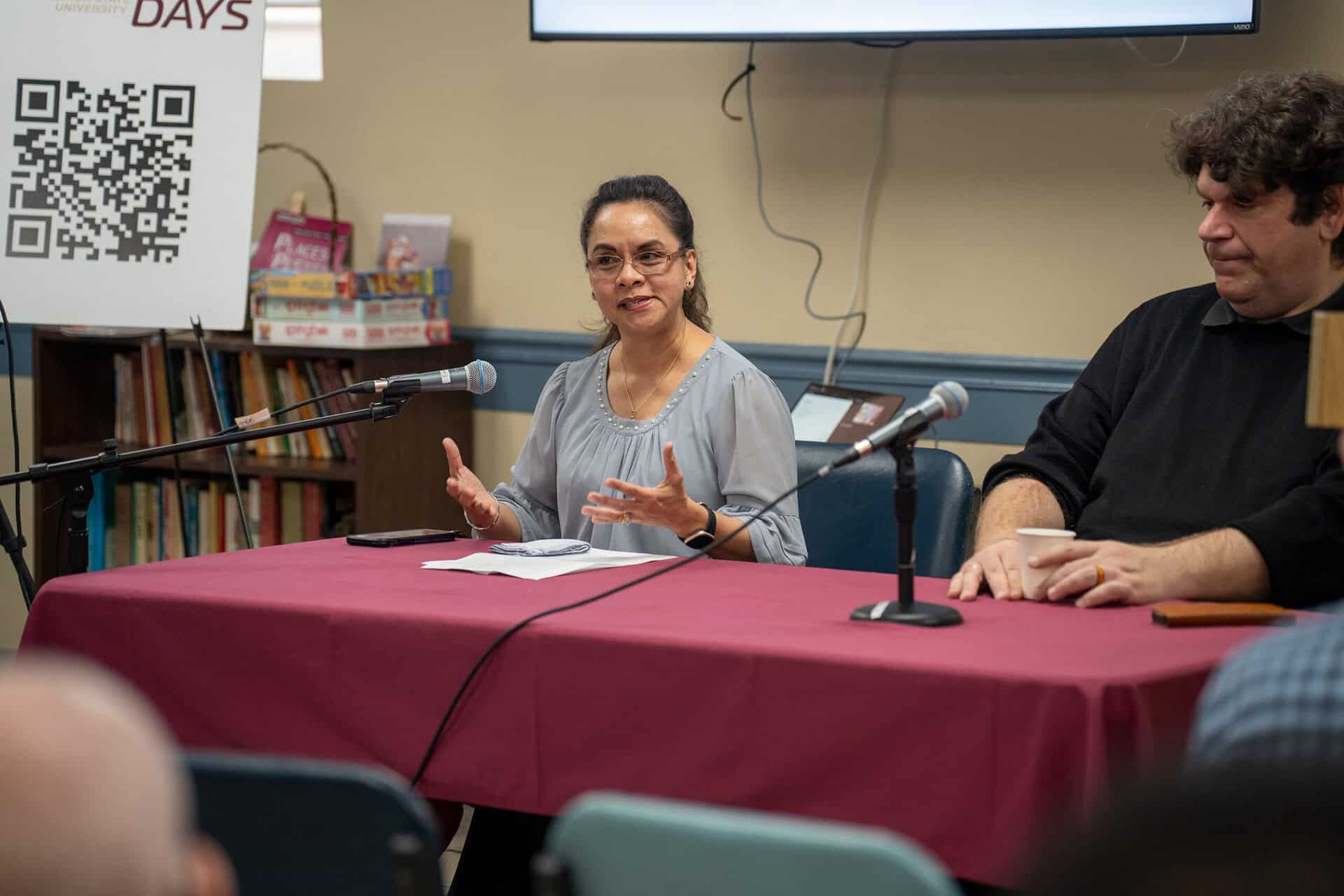Drs. Zhe He, Interim Director of the FSU Institute for Successful Longevity (ISL), and Mia Lustria participated in a panel on the intersection of aging and technology at the Tallahassee Senior Center on October 9, 2024. The event was arranged by the ISL as part of FSU Discovery Days, a week-long celebration of FSU research, creativity, and discovery enterprise.

“Events like this allow us to connect directly with the community, hear their perspectives, and better understand their needs,” He said. “Technology can enhance the quality of life for older adults, but it’s essential that we address their unique challenges and concerns. This event is not just about showcasing advancements—it’s about ensuring that innovations in technology are accessible, user-friendly, and aligned with the real needs of the people we aim to support.”
Special guest Dr. George Demiris (University of Pennsylvania) kicked off the event with his talk, “Aging and Technology: Challenges and Opportunities.” His talk focused on the different ways we can use technology to support aging in place—addressing issues like social isolation and loneliness, supporting self-management and health monitoring using advanced technology like AI, embedded sensors, etc. For example, smart homes, equipped with sensors and Internet of things technology, allow us to collect data about users to help monitor behavior patterns and other health-related data unobtrusively.
“This technology can help us understand how someone is living in their own home,” Demiris said. “We can see if someone becomes more restless at night, or that they move around more or less frequently in their own home.”
The panelists, which included He, Lustria, Demiris, and Drs. Dawn Carr and Miles Taylor (FSU Department of Sociology), then answered questions posed by community members.

“We want to empower patients to take charge of their health using different tools,” Lustria said in response to a question about the challenges facing technology use. “I emphasize to my students the importance of adopting the technology appropriate to the needs of the patient.”
Dr. He hopes the audience left the panel with the understanding that technology has the potential to greatly improve their lives, but not through any single solution. “We need to recognize that aging is diverse, and technology must be adaptable to meet the unique needs of each individual,” He said.

